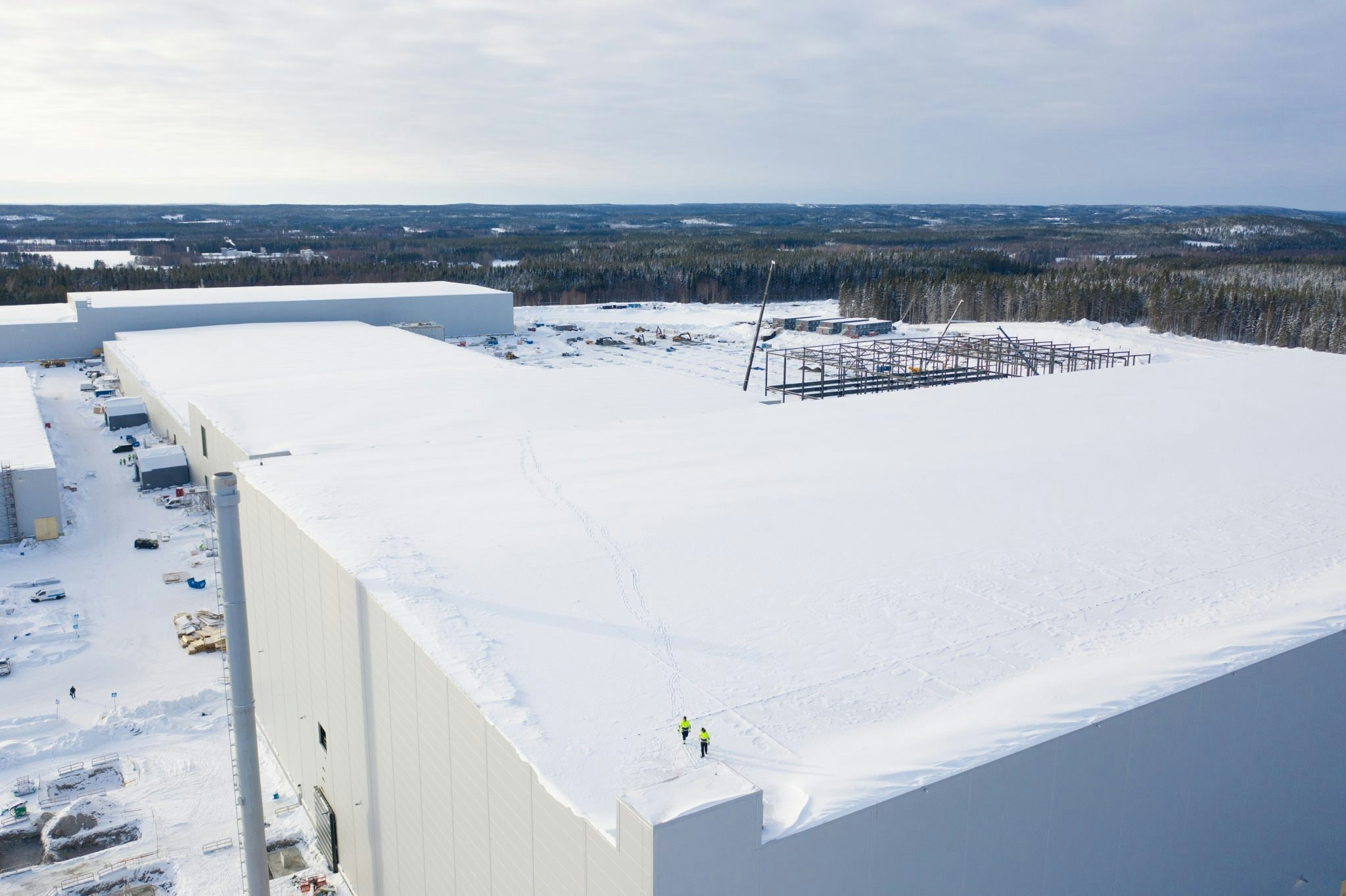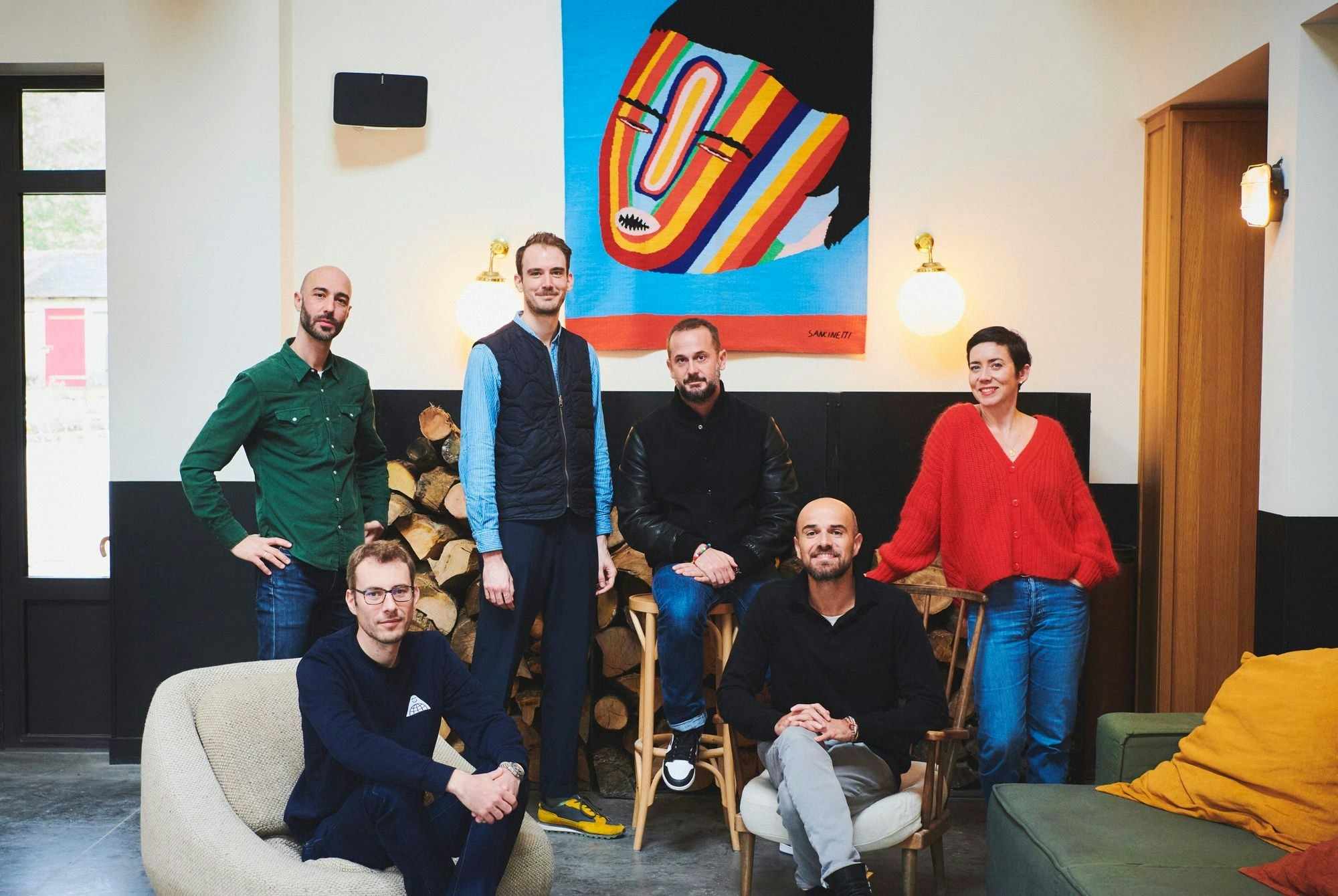As other startups have slammed the brakes on funding rounds in a tepid market, investor confidence in climate tech and clean energy in Europe has stayed steady.
“The next generational task — and also opportunity — we have is in climate sustainability,” says Stefan Gross-Selbeck, global managing partner and global topic leader climate tech at Boston Consulting Group (BCG). “The amount of dollars going into that space is unprecedented.”
So, what numbers do you need to know? Sifted dived into the data and found the biggest opportunity areas in climate tech right now.
Number To Know 1: $104bn
That’s the size of the continent’s climate tech ecosystem. And according to analysis by Dealroom, it has doubled in value since 2020. Eleven out of Europe’s 16 climate tech unicorns were created just last year.
Gross-Selbeck says there have been a few major shifts in the industry that have made climate tech the buzzy opportunity it is now. The first major one is the mobilising power of the world’s net zero goal.
For instance, Pitchbook found the second quarter of 2022 saw the highest-ever VC investment in carbon capture startups — with $882.2m invested across 11 deals worldwide.
Number To Know 2: $4tn
That’s the sum that global clean energy investment needs to be hitting annually by 2030 for the world to reach net zero by 2050, according to a 2021 International Energy Agency (IEA) report.
That goal, combined with a surge in interest in renewable energy and energy security spurred by Russia’s invasion of Ukraine, has been a huge source of investment inflows for sustainable energy companies. In 2021, $11bn went into European climate tech startups.
One company is We Do Solar, a startup that brings balcony-hung affordable solar panels to consumers in Germany, launched in early 2022. When oil prices spiked in March, We Do Solar recorded a 70% jump in sales and now are sifting through a significant waiting list of consumers, Karolina Attspodina, the startup’s CEO and cofounder, tells Sifted.
“From January onwards, we’re starting our expansion into other European markets, so that by the end of next year, we’re looking to cover all of Europe,” says Attspodina.
We Do Solar isn’t alone: climate think tank Ember found solar generation over the summer months rose to record levels in Europe. This has led to more solar startups like Germany-based Enpal, Norway-based Otovo, and Sweden-based Svea Solar are expanding their remit.
Other renewable energy forms, like hydrogen and nuclear fusion, are also seeing a boom in interest from investors.
Number To Know 3: 18
That’s the number of direct air capture plants in operation across the world, according to an IEA tracking report published in September 2022. These plants are extracting carbon dioxide from the atmosphere and storing it underground, in a move to offset CO2 emissions and their effects on global warming.
There’s a very interesting play right now, where Europe and the US are competing to be the best competitive environment to build and invest in these kinds of technology
Carbon sequestration and storage offer promising technological solutions in the mission to limit warming to 1.5C. The European Commission has plans for a certification system for carbon capture and removal to encourage development and across the pond, the US Inflation Reduction Act (IRA) is expected to inject new major funding into the space.
“There’s a very interesting play right now, where Europe and the US are competing to be the best competitive environment to build and invest in these kinds of technology,” says Gross-Selbeck.
For example, America’s IRA will allocate a historic amount to reducing emissions and boosting renewable energy sources, potentially incentivising companies to move to the US.
That’s a big change from a decade ago. When Climeworks, a direct air capture climate tech startup, was founded in 2009, “it borderline sounded like science fiction” to investors, chief marketing officer Julie Gosalvez tells Sifted.
Number To Know 4: $650m
Climeworks’ latest private funding equity round brought in $650m in April 2022. And after switching on the world’s largest direct air capture and storage plant in Iceland, the company just recently announced the building of a larger second plant — Mammoth.
“There’s never been more money flowing from VCs, and I think there has not been a better time than now to start a climate company,” says Gosalvez.
Q3 figures out from Pitchbook logged $882.2m invested in post-combustion carbon removal startups globally. That sum combines 11 deals across direct air capture startups, like Climeworks, and point source capture startups like London-based Carbon Clean which recorded a $150m Series C round, led by Chevron.
I think there has not been a better time than now to start a climate company
There’s a trend of highly extractive companies such as those in the oil, gas and mining industries investing in climate tech. But PR claims by major players still tend to overstate the actual proportion of their investments in green activities, according to the think tank InfluenceMap.
Number To Know 5: Eight
That’s the number of supply chains that make up more than 50% of global emissions, according to a 2021 report by the World Economic Forum. “You or I changing our individual behaviours will make almost no difference unless we can get a grip on some of those dirty industries and their supply chains,” says Doug Johnson-Poensgen, CEO of supply chain tracing company Circulor.
One of Circulor’s clients, mining giant BHP, is exploring carbon removal in its nickel mines in Western Australia. “Nobody cared about this five years ago,” says Johnson-Poensgen, but that’s all changed now that investors and regulators are focusing on ESG performance.
I work in climate, so I have to be optimistic
Both regulatory and financial incentives now exist in Europe and the US for companies to track their supply chains more robustly. In response, a whole sweep of startups dealing in the circular economy have sprung up to offer supply chain tracing and emissions credit systems.
Berlin-based startup Cleanhub, for example, raised nearly €4m in a seed round to track the plastic emissions of major brands.
“As a CO2 emitter, you can offset your CO2 emissions — that’s a model that’s been around for many years. Cleanhub is applying a similar concept to plastic, so if you are a producer of plastic, you can compensate for that by taking plastic out of the system,” says Gross-Selbeck.
Climate action is up against a ticking clock, but with new regulatory and financial pressures to go green and a dovetailing emphasis on energy security, investors and startups are optimistic about what’s next.
“I work in climate, so I have to be optimistic,” says Gosalvez.
BCG Green Ventures, part of BCG Digital Ventures, is spearheading BCG’s mission to accelerate climate action through corporate innovation.




